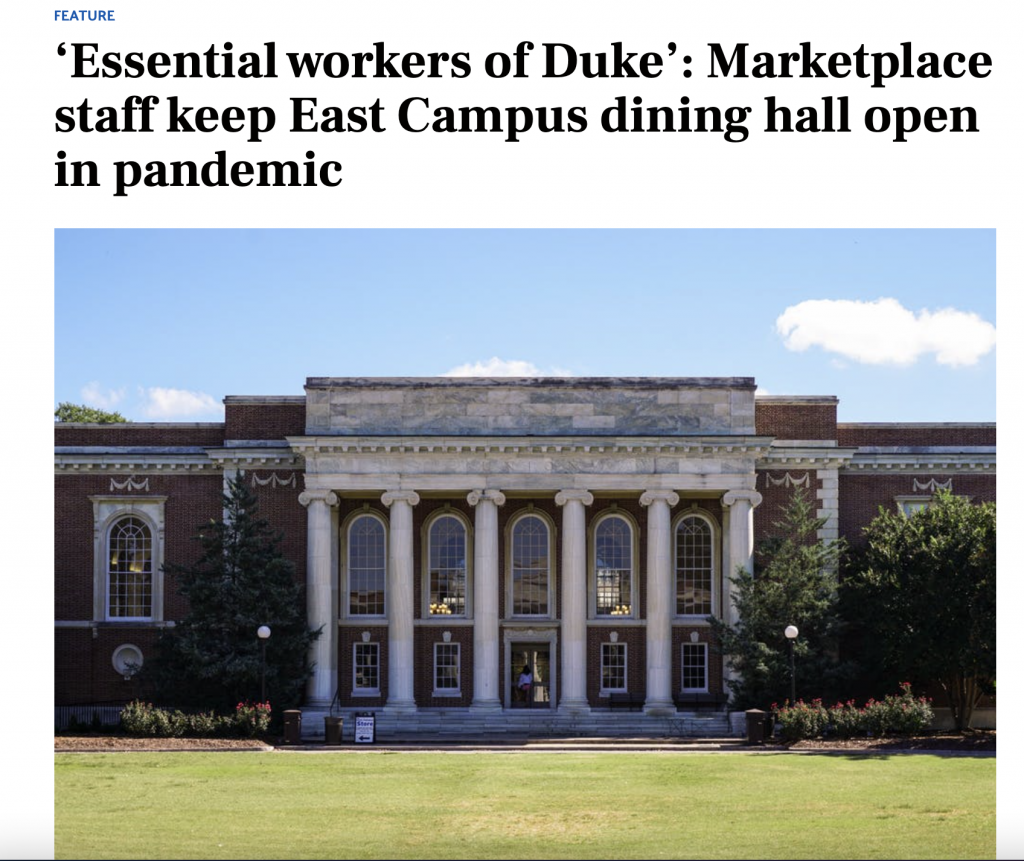A day in the life of a duke essential worker
During the COVID-19 pandemic the term essential workers has been coined to describe those frontline workers that work in face-to-face settings at medical hospitals, grocery stores, crop fields, food delivery, public transportation and in-home settings like housekeeping and nannying. The pandemic has lasted more than a year and as different businesses like clothing stores, schools and universities started opening back up slowly, the term essential workers became a flexible term used to describe different kinds of workers including retail workers and K-12 teachers.
Duke has always had essential workers on campus that keep this campus maintained and functioning. In this section I take a deeper look into the the day in the life of one essential worker that works in Duke retail to see how their routine has has been affected during the COVID-19 pandemic.
The Duke employee asked to stay anonymous so I have given them the pseudonym Rebecca. Rebecca is white middle aged woman. Most essential workers at Duke University are people of color.






